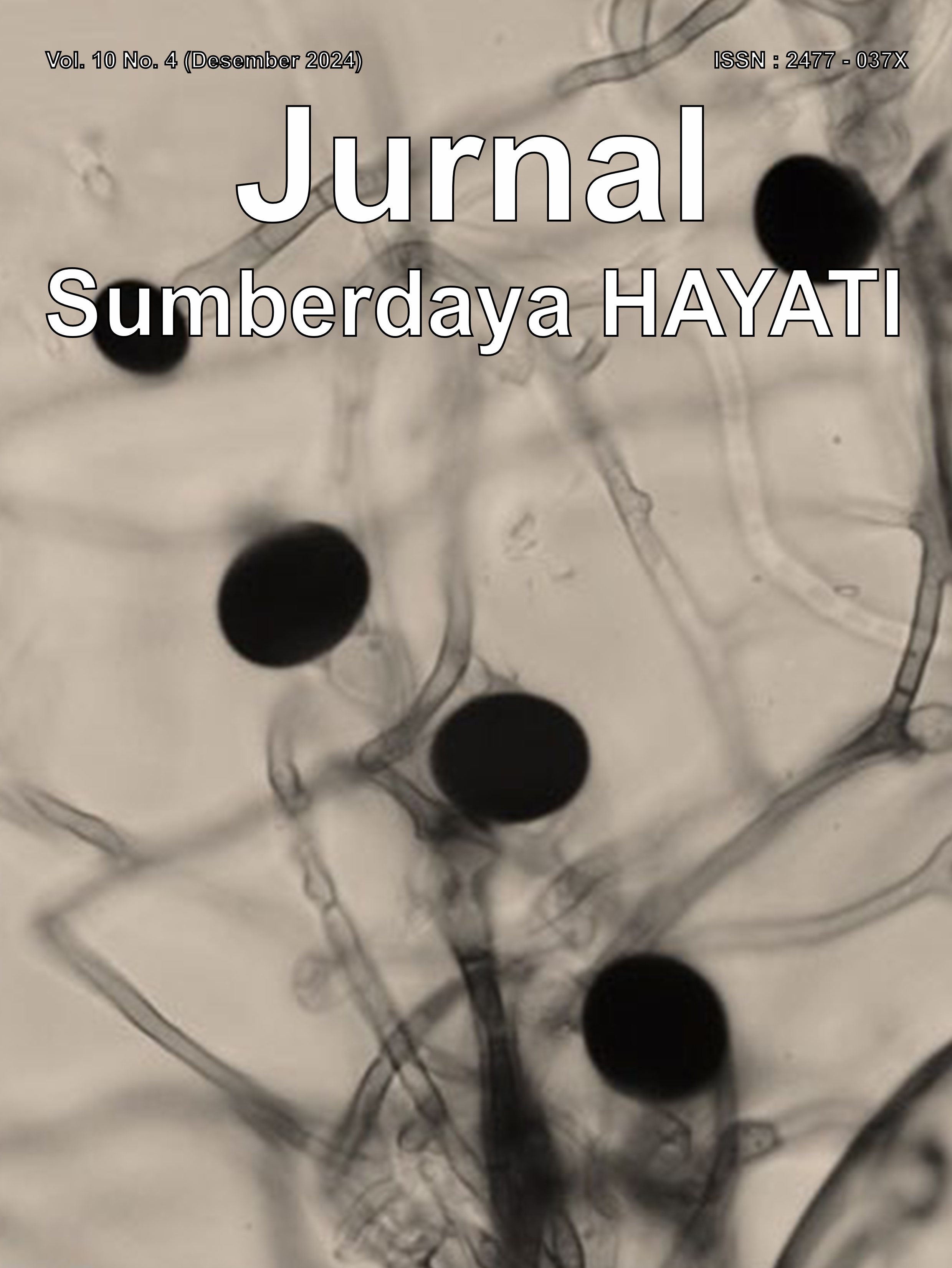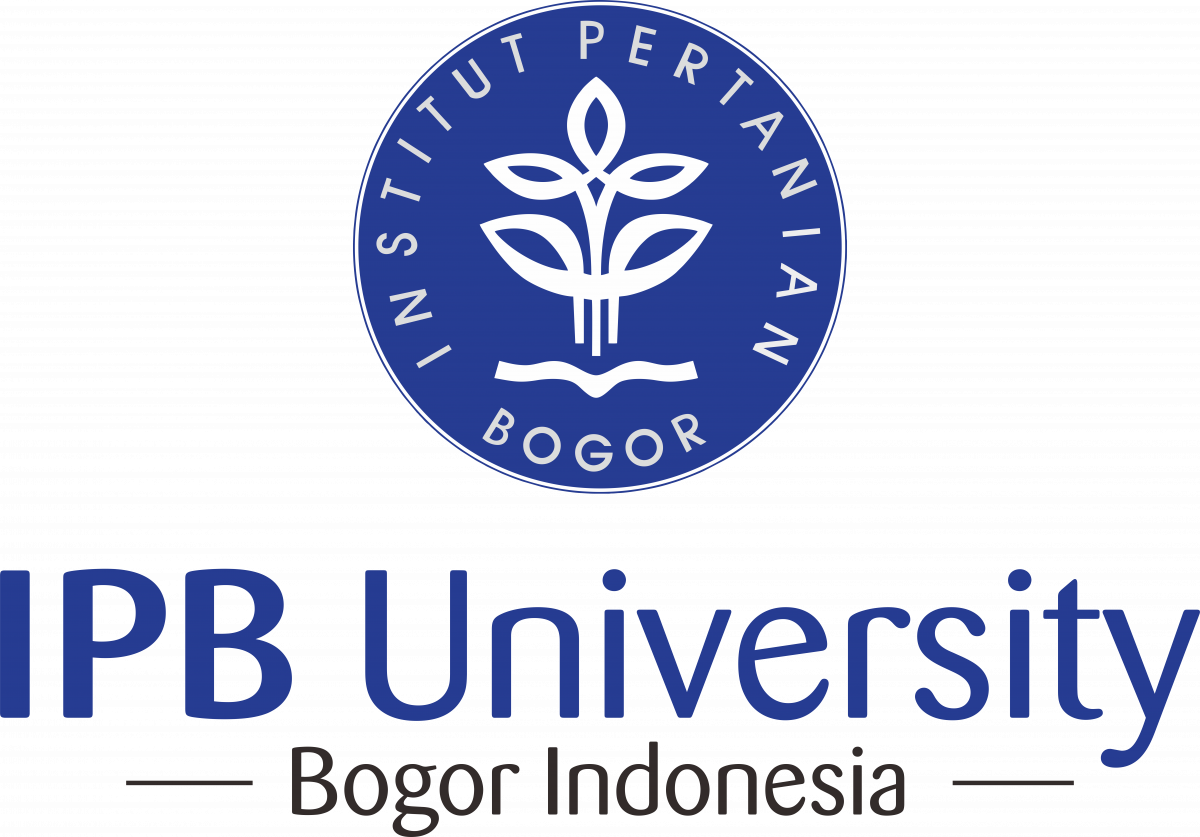Isolasi dan Karakterisasi Bakteri Rhizobium asal Bintil Akar Tanaman Kacang Tanah (Arachis hypogaea) dan Koro Rawe (Mucuna bracteata)
Isolation and Characterization of Rhizobium Bacteria from Root Nodules of Peanut Plants (Arachis hypogaea) and Koro Rawe (Mucuna bracteata)
Abstract
Nitrogen (N) is naturally available in the form of N2. Nitrogen fixation can be facilitated by microbes such as Rhizobium bacteria, which can establish symbiosis with the roots of legume plants to form root nodules that perform nitrogen fixation. This study aims to determine the characteristics of Rhizobium bacteria in the root nodules of peanuts (Arachis hypogaea) and koro rawe (Mucuna bracteata). The methods used in this research include collecting root nodules, isolating Rhizobium bacteria, and identifying and characterizing these bacteria for their nitrogen fixation and phosphate solubilization capabilities. Characterization results on YEMA + Congo red media indicated that 10 out of 16 isolates from peanut root nodules and 30 out of 55 isolates from koro rawe root nodules were positive for Rhizobium bacteria. The nitrogen fixation activity test revealed that only 4 isolates from peanut root nodules and 6 from koro rawe root nodules exhibited nitrogen fixation ability in Jensen's medium. The highest phosphate solubilization index was obtained from isolate KK.5.1.1 (0.5±0.08), while the lowest was from isolate KK.5.2.2 (0.09±0.06). This research underscores the significance of Rhizobium in enhancing nitrogen availability and phosphate solubilization for legume plants.
Downloads
Copyright (c) 2024 Erma Suryanti, Alnovara Yuan Nabilla, Dian anggria sari

This work is licensed under a Creative Commons Attribution 4.0 International License.
Authors who submit and publish with this journal agree to the following terms:
1. Authors retain copyright and grant the journal/publisher non exclusive publishing rights with the work simultaneously licensed under a Creative Commons Attribution 4.0 International License.
![]()













